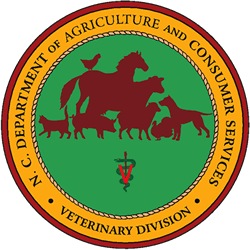Our horses require some special attention during cold weather to assure they are healthy and happy. Read on for more information regarding 3 important aspects of cold weather management: water, hay, and shelter.
Water
Did you know the average sized horse needs to drink between 10-12 gallons of water every day? This is especially important during the winter months. During extremely cold weather horses are prone to dehydration. This can be from a frozen water trough or from a reluctance to drink very cold water. We recommend using water tank heaters to prevent ice build-up and maintain the water at a more drinkable temperature. At a minimum horses should be provided with fresh, clean water several times a day. You can also consider adding salt to your horses feed to increase thirst and encourage water consumption.
Hay
Provide a good quality, dry hay for your horses throughout the day during severe weather. Digestion of the hay not only provides extra calories to stay warm, but the act of digesting the hay actually produces heat. Allowing a horse to consume forage through the day and night keeps the digestion process always moving. This not only keeps the horse warm, it can actually help prevent colic; provided the horse has access to plenty of fresh water and stays hydrated.
Shelter
Even horses that are accustomed to constant turn out may need a shelter during severe weather. The winter hair coat on a horse traps air to utilize as insulation. Wind and rain can both flatten the hair coat, significantly limiting the insulating properties. Shelter is highly recommended for horses during wet or windy weather. A simple shed that blocks the wind and rain works wonders for helping your horse stay warm. Blankets can be a very useful tool in helping our horses stay warm. Not all of them need it, but those who are clipped for the winter season can benefit especially.
If you notice your horse acting lethargic or reluctant to move, shivering, or their temperature is lower than 99.5 F, move them to a warm area and allow them to warm up. Attempt to dry them if they are wet, get them out of the wind, and utilize blankets. Provide warm water to drink and dry hay for them to eat.
For more information on keeping your horse healthy in the wintertime read these articles from the American Association of Equine Practitioners:
References
American Association of Equine Practitioners Horse Health Articles
Cold Weather Colic by Scott Leibsle, DVM
Cold Weather Care by Thomas R. Lenz, DVM, M.S.



